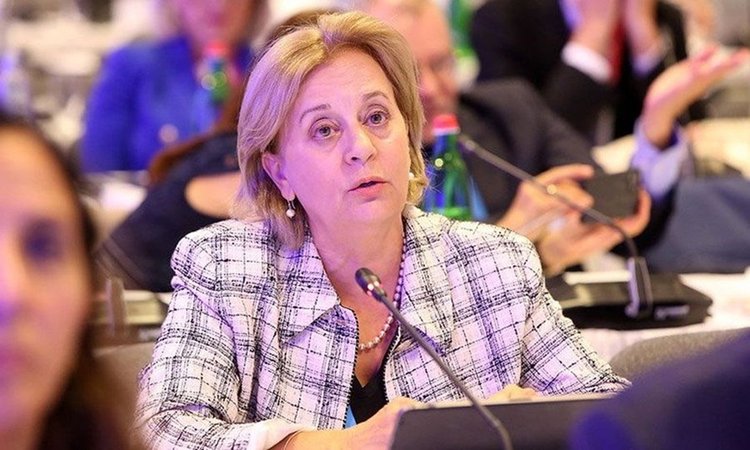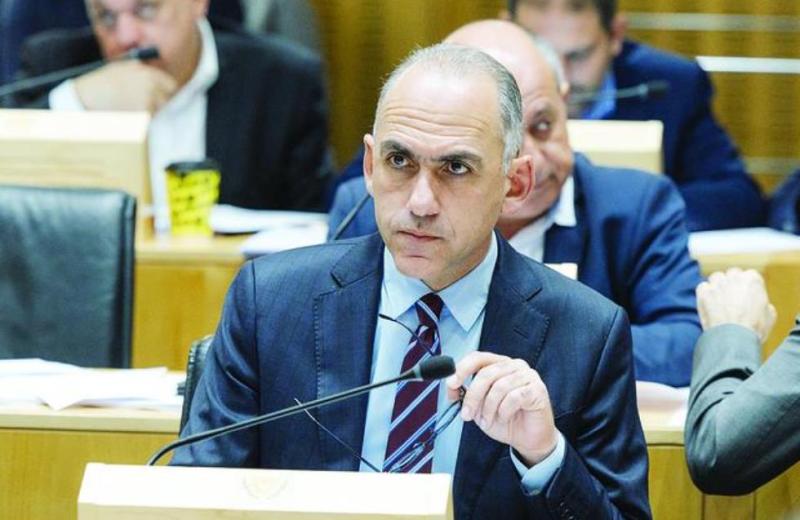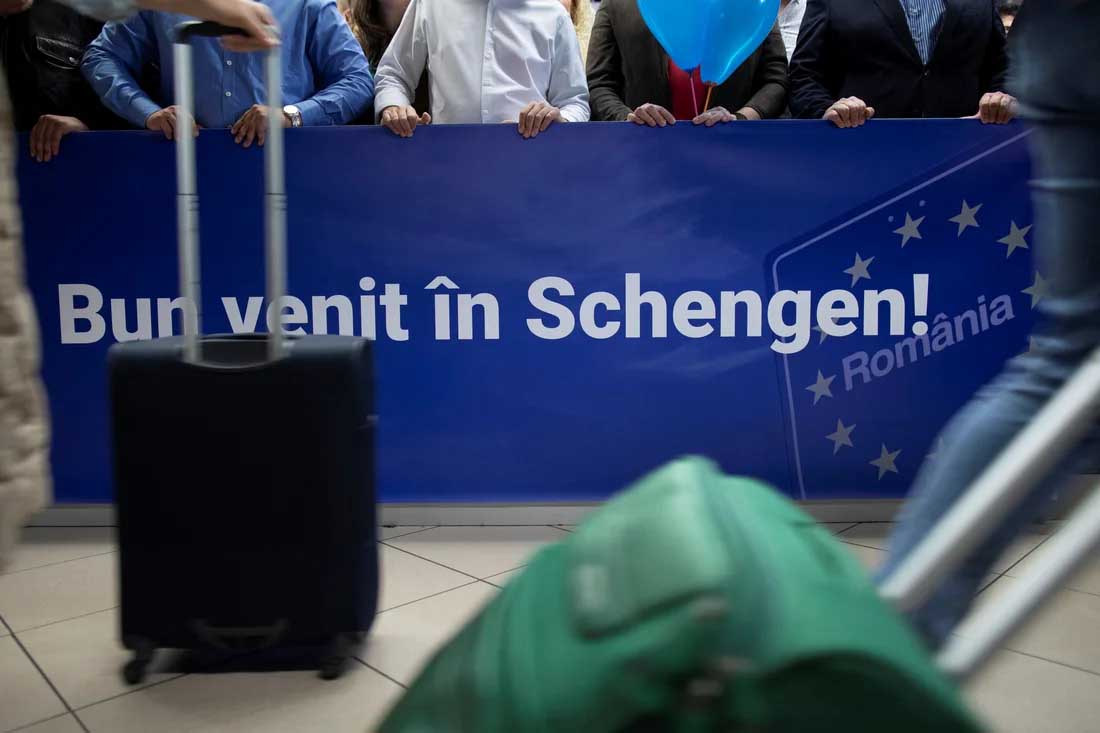Fears over ‘hard border’ with north and abuse of ‘golden visas’
Cyprus has charted a course full-steam ahead to joining the Schengen area, with the government insisting it can get to its destination by sometime next year. But amid the apparently buoyant mood, questions linger as to whether this would make the demarcation line in Cyprus – the Green Line –a so-called ‘hard border’ for the EU, thereby indirectly ‘recognising’ the crossing points as a border.
There are also suspicions as to whether the recent concerted push for Cyprus to enter Schengen will lead to abuse of its ‘golden visa’ programme as it would facilitate visa holders’ travel within the European Union. The ‘golden visa’ is a fast-track permanent residency programme for wealthy third-country nationals and partially replaces Cyprus’ now-defunct ‘golden passport’ scheme.
The Cyprus Mail attempted repeatedly to contact the foreign ministry – specifically the Consular Affairs and Schengen Directorate – for a comment but were unable to speak with someone by the time of this report. The directorate is headed by Philippa Karsera-Christodoulides, the first lady.
But just this past Friday, the foreign minister again reassured MPs that the ‘hard border’ was not an issue. Constantinos Kombos was briefing lawmakers on the progress made so far along the Schengen track.
Describing full accession to the visa-free area as a ‘national goal’, he asserted there would be no concessions on the acquis communautaire or recognition of the ceasefire line as an external border.
The crossing points between the island’s north and south would not become ‘Schengen entry points’, the minister told MPs.

He stressed that “under no circumstances will we accept it [the ceasefire line] to be considered an external border”.
Kombos noted that joining Schengen is “an obligation stemming from our EU accession”, though the endeavour has been technically complex, which explained the previous delays in advancing efforts.
On a technical level, this was “an incredibly huge project” demanding coordination between several ministries and government agencies.
“Significant progress has been made,” said Kombos, adding that the aim is to secure a positive recommendation from the European Commission. Political approval by all Schengen member-states would then be required for accession.
Cyprus is already lobbying other states, especially those where there is concern about their likely stance.
Kombos also referenced Protocol 10, annexed to the 2003 Act of Accession of Cyprus to the EU. Addressing the specific situation of the island’s division, the protocol stipulates that the application of EU law (the acquis) is suspended in those areas of Cyprus where the Republic of Cyprus does not exercise effective control. This suspension would be lifted upon a comprehensive settlement of the Cyprus problem.
Cyprus is one of just two EU member-states left outside the Schengen zone.
Following the recent accession of Bulgaria and Romania, Cyprus and Ireland remain the only EU member states outside the Schengen zone.
In Cyprus, the main issue lies in the buffer zone, which serves as the de facto border and complicates matters.
At the same committee session, and despite Kombos’ assurances, opposition Akel retained its scepticism. Akel MP Giorgos Loukaides voiced strong concerns about the ceasefire line becoming a ‘hard border’ and stressed that crossing points between the south and north must not be considered EU entry points.
He also warned against abuse of the ‘golden visa’ scheme post-Schengen accession, noting that Akel has already submitted two bills to regulate the issue.
The ‘golden visa’ is a fast-track programme for third-country nationals. It requires an investment – in real estate or in the shareholding of a company – of at least €300,000. In return, applicants get permanent residency status in Cyprus.
Incidentally, such permanent residents would also enjoy the full benefits of visa-free travel under Schengen.
Asked about the potential future exploitation of the ‘golden visas’ via Schengen, the MP commented: “The affected parties, or rather the interested parties, obviously find themselves in a more adverse position relative to other EU member states which have joined the Schengen area.
“Individuals who seek to acquire permanent residence in an EU member state, they prefer other states which are full members of Schengen, as this facilitates their travel within the European Union.”
Therefore, went on Loukaides, were Cyprus to fully join, it would be reasonable to assume that the ‘golden visas’ programme would be accelerated.
The first Akel bill regulating the ‘golden visas’ would see the discounted 5 per cent VAT on property purchases abolished. The normal VAT rate for property purchases is 19 per cent.
Under the second bill, Akel proposes to have the ‘golden visa’ scheme scrapped within six months, unless by that time the government has tabled explicit criteria regarding that scheme.
In Akel’s view, the ‘golden visas’ are in some ways just as arbitrary and risky as the now-defunct citizenship-via-investment programme – colloquially known as the ‘golden passports’.
With the former, the criteria are decided by just one minister, Loukaides said; with the latter, it was the cabinet as a whole that had the final say.
Likewise, independent MP Alexandra Attalides told us she remains wary about the Schengen venture.
Her fears are two-fold: first, passport control at the crossing points and, secondly, abuse of the ‘golden visas’.
Attalides, who attended Friday’s session of the foreign affairs committee as an observer, said she understands that the government’s philosophy amounts to this: take care of the technical side first, then the political aspect – meaning the stance of the other member-states.
Still, her suspicions about Schengen are implacable.
“Look”, she said, “during three administrations – Tassos Papadopoulos, Demetris Christofias and the first Nicos Anastasiades administration – we did nothing about Schengen. So why all of a sudden in 2019 did the government set things in motion?”
The MP connected the dots in her own way, and found something intriguing about the timing – 2019 was the same year in which Cyprus got into hot water with Brussels over its ‘golden passports’ scheme.
In early 2019, the European Commission issued a report warning that programmes of EU states, including Cyprus, to sell passports and visas to wealthy foreigners could help organised crime groups infiltrate the bloc and raise the risk of money laundering, corruption and tax evasion.
Later, in October 2020, the Commission launched infringement proceedings against Cyprus regarding the passports scheme. Just a month later, following the airing of a damning documentary by Al Jazeera, Cyprus axed the passport programme.
“So 2019 is the year when we started getting into trouble with the EU over the passports, and also when we finally got the ball rolling on Schengen,” said Attalides.
“Interesting, don’t you think”?
Tracking the timeline, she came up with more clues: on November 5, 2019 Nikos Christodoulides – at the time the foreign minister – informed parliament that Cyprus had applied to join Schengen. The application was made in September of that year.
Just a few days later, Attalides noticed that a major property developer uploaded to its website the briefing that Christodoulides gave to MPs.
She says the website hastily pulled down the posting after she began asking questions in parliament.
And in February 2021, Christodoulides – still foreign minister – held a meeting with the Association of Large Investment Projects. The topic discussed: Schengen.
So could this be just another racket?
Absolutely not, said Harris Georgiades, the Disy MP who chairs the House foreign affairs committee.
If anything, he argued, by joining the Visa Information System and other shared Schengen databases, Cyprus will tighten up controls over who travels here. It would also help weed out any bad actors who might use their permanent residency status merely as a tool to get visa-free access to the Schengen area.
“The whole point of Schengen is precisely to tighten up external borders while relaxing internal controls,” offered Georgiades.
On the question of the ‘hard border’, the MP downplayed it, insisting – as Kombos did – that the Green Line Regulation already does the job.
The Green Line Regulation of 2004 establishes special rules for the movement of people and goods across the Green Line in Cyprus, separating the government-controlled areas from the Turkish Cypriot community.

“It regulates everything”, Georgiades told us.
“Right now no Turkish settlers are allowed to enter the south, the Republic of Cyprus. No immigrants living in the north are allowed either. Only Turkish Cypriots with a valid ID – issued by the Republic – may enter the south.
“Under Schengen, all this will stay the same.”
He added: “The Green Line is not an international border, rather it’s a demarcation line, a ceasefire line. This is widely understood and accepted.”
The Disy MP even suggested that the purported risk of creating a ‘hard border’ on Cyprus was merely a ‘perception’ among some circles. It was never a real impediment.
And he was unaware of any official declarations to the effect that joining Schengen would create a ‘hard border’.
But a former diplomat we reached out to, said otherwise. According to the source, who spoke on condition of anonymity, there was a time at the foreign ministry when indeed the ‘hard border’ was a real concern.
Joining the Schengen area is a massive, complex undertaking. Other than arrangements to remove border controls, there are the aspects of immigration and aligning data-privacy practices with the EU acquis.
In July 2023, Cyprus joined the Schengen Information System (SIS), which allows for cooperation on crime, immigration and other security-related matters within the Schengen area.
The SIS and Europol cooperation mechanisms will be used more actively for security screening and cross-border policing.
It’s a phased, multi-step process.
“EU checks regarding our compliance are ongoing,” Georgiades explained.
“We’re entering the implementation phase. You might say that we already have one foot inside Schengen.”
Asked why for 15 years – from Cyprus’ accession to the EU up until 2019 – the island did virtually nothing to join Schengen, the MP speculated it may have been because of a number of reasons.
“We had to deal with the aftermath of the Annan plan referendum, then we set as a priority our entry into the eurozone, next we had the 2013 financial meltdown.
“Whatever the case, we definitely didn’t pursue it as much as we could have.”
Last but not least, Cyprus needs to make major changes to its infrastructure – not just installing and deploying software screening systems at points of control – police, customs and so forth – but also brick-and-mortar upgrades.
“Take the airports. We’ll need to build a new wing or section. So one section will be for Schengen- area travel, and the other part of the airport for other international travel.”
At any rate, Georgiades imparted confidence over Cyprus’ Schengen prospects.
“We’re almost there,” he said.






Click here to change your cookie preferences